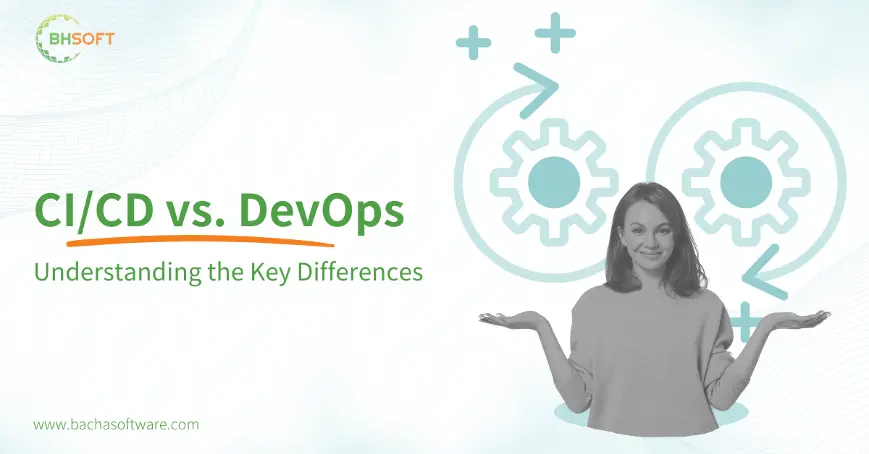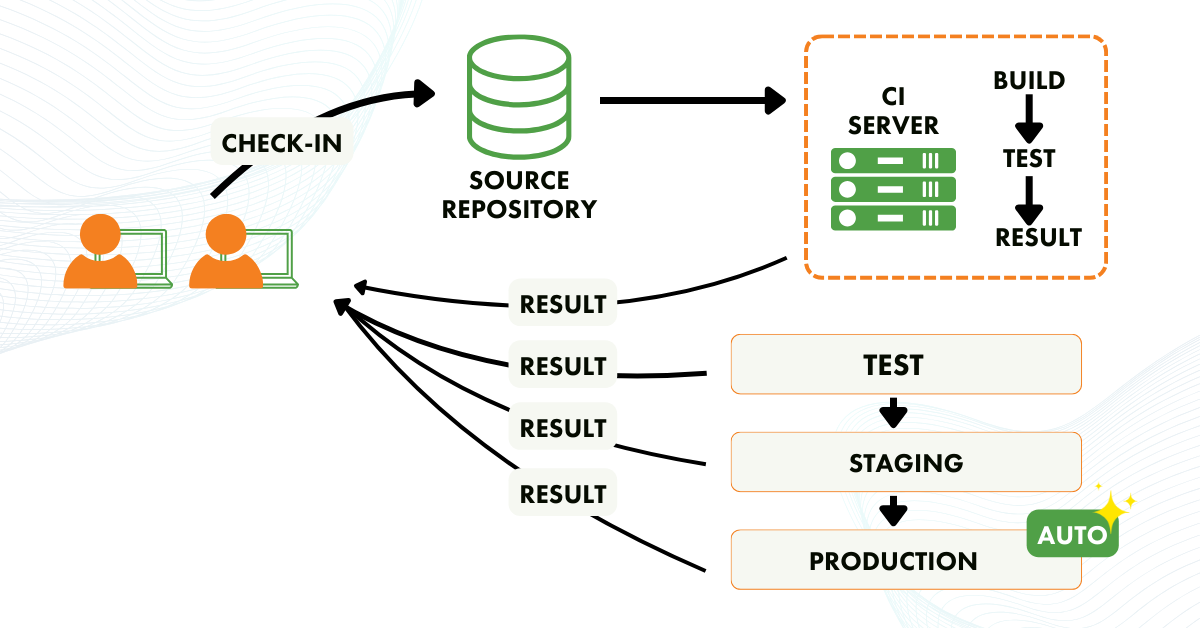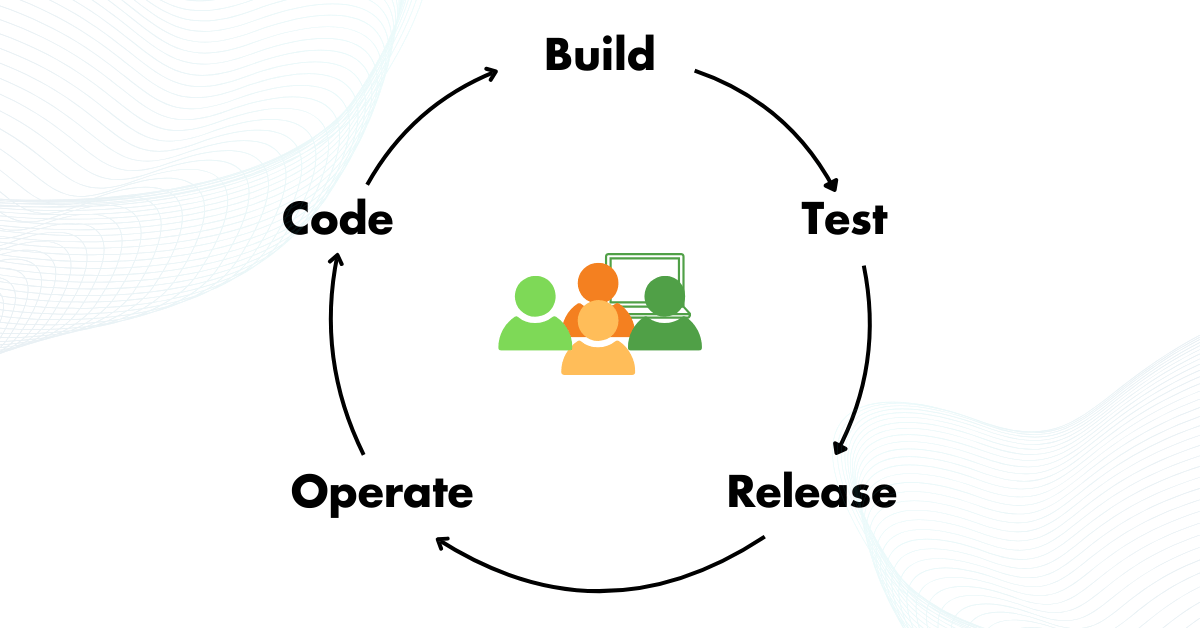CI/CD vs DevOps: Understanding the Key Differences
5 minutes read
Audio description available
September 05, 2024
How can you streamline your software development process while maximizing efficiency and ROI?
For many modern businesses, the answer lies in two powerful approaches: CI/CD and DevOps. These methodologies have rapidly transformed the way software is built and delivered, enabling organizations to release products faster, reduce errors, and stay competitive in a fast-moving digital landscape.
However, while CI/CD and DevOps are often mentioned together—and are both core components of modern DevOps services—they are not the same. Each plays a distinct role in optimizing software delivery and operational performance.
In this guide, we’ll break down the key differences between CI/CD vs DevOps, explain how they work together, and help you determine which approach—or combination—best fits your business goals. Whether you’re a CTO, a development leader, or part of a growing tech team, understanding these concepts will empower you to make smarter decisions and drive long-term cost efficiency.

What Is CI/CD?
CI/CD, or Continuous Integration and Continuous Delivery/Deployment, is a series of automated processes that streamline code integration, testing, and deployment. These practices enable development teams to deliver software updates quickly and efficiently, minimizing manual intervention and reducing errors.
- Continuous Integration (CI): The practice of regularly merging code changes into a shared repository, where automated tests run to catch bugs early. This allows developers to detect and resolve issues before they escalate.
- Continuous Delivery (CD): CD ensures that once the code passes tests, it can be deployed to production with minimal manual effort. In Continuous Deployment, this process is fully automated, making code changes instantly available to users without human intervention.
Implementing CI/CD services allows businesses to streamline their development cycles and improve the quality of their applications.
 The CI/CD process.
The CI/CD process.
Benefits Of CI/CD
Implementing CI/CD helps organizations accelerate software delivery while maintaining high quality and efficiency.
- Faster Releases: Automated CI/CD pipelines streamline testing and deployment, enabling faster and more reliable software releases.
- Improved Collaboration: CI/CD automation improves collaboration between development and operations teams through standardized and transparent workflows.
- Higher Software Quality: Continuous integration and automated testing detect issues early, ensuring stable and high-quality releases.
- Cost Efficiency: Early bug detection in CI/CD pipelines reduces rework and lowers the cost of fixing issues in production.
According to Puppet, organizations that fully adopt CI/CD and DevOps practices deploy software 208 times more frequently and achieve a 106 times faster lead time for changes compared to those without CI/CD.
Challenges of CI/CD Implementation
While CI/CD brings significant benefits, implementing an effective CI/CD pipeline also comes with several challenges:
Toolchain Complexity: Selecting, integrating, and maintaining multiple CI/CD tools can be complex, especially in large or legacy systems.
Cultural and Process Changes: CI/CD requires close collaboration between development, QA, and operations teams. Organizations often struggle to shift from traditional workflows to a DevOps-driven culture.
Pipeline Security Risks: Without proper security practices, CI/CD pipelines can expose vulnerabilities, making CI/CD security and access control critical concerns.
Test Automation Gaps: Inadequate or poorly designed automated tests can slow down the pipeline and reduce the effectiveness of continuous integration.
Legacy System Constraints: Integrating CI/CD into legacy applications often requires refactoring, which can increase implementation time and cost.
What Is DevOps?
While CI/CD focuses on the automation of code integration and delivery, DevOps is a broader philosophy that fosters collaboration between development and operations teams. It emphasizes continuous communication, integration, and shared responsibility throughout the entire software development lifecycle.
DevOps was born from the need to break down silos between development and operations teams, promoting a culture of collaboration and agility. It aims to integrate the roles of development (Dev) and IT operations (Ops) to ensure smooth delivery and deployment of software.
A successful DevOps implementation involves leveraging tools, such as containerization, infrastructure-as-code (IaC), and monitoring, to create a seamless workflow from development to deployment.
 The DevOps process.
The DevOps process.
Benefits Of DevOps
By adopting DevOps principles and practices, organizations can significantly improve software delivery speed, scalability, and operational efficiency.
- Faster Time-to-Market: DevOps automation and close collaboration between development and operations teams enable faster and more reliable software releases.
- Improved Scalability: With cloud-based infrastructure and DevOps practices such as Infrastructure as Code, teams can easily scale applications based on business demand.
- Enhanced Security: DevOps integrates security throughout the software lifecycle through DevSecOps, helping identify and mitigate risks early.
- Continuous Improvement: Continuous monitoring, feedback loops, and performance metrics allow teams to continuously optimize system reliability and efficiency.
According to a GlobeNewswire report, the DevOps market is expected to reach $25.5 billion by 2028, highlighting the growing adoption of DevOps to boost productivity and accelerate software delivery.
Challenges of CI/DevOps Implementation
While CI/CD and DevOps practices deliver clear advantages, implementing them effectively can present several challenges for organizations:
Cultural Resistance: CI/DevOps requires a cultural shift toward collaboration, shared responsibility, and automation. Teams accustomed to siloed workflows may struggle to adapt.
Toolchain and Integration Complexity: Managing multiple CI/CD and DevOps tools—such as version control, build, testing, deployment, and monitoring platforms—can increase operational complexity.
Legacy System Limitations: Integrating CI/DevOps pipelines into legacy applications often requires significant refactoring, which can impact timelines and budgets.
Security and Compliance Risks: Without proper governance, CI/DevOps pipelines may introduce security vulnerabilities, making DevSecOps practices essential.
Skills and Expertise Gaps: Successful CI/DevOps adoption requires skilled engineers with experience in automation, cloud infrastructure, and monitoring, which can be challenging to acquire or develop internally.
CI/CD vs DevOps: Key Differences
When comparing CI/CD vs DevOps, it’s important to note that while CI/CD is part of the DevOps ecosystem, they serve distinct roles within the software development process. Let’s explore some of the key differences:
|
Criteria |
CI/CD |
DevOps |
|
Scope |
A core component of the DevOps ecosystem, focused on technical automation |
A broader methodology that combines culture, processes, and tools |
|
Focus |
Automating code integration, testing, and software delivery |
Improving the entire software development lifecycle through collaboration and continuous improvement |
|
Primary Goal |
Accelerate and stabilize build, test, and deployment pipelines |
Enhance team collaboration, productivity, and delivery efficiency |
|
Culture vs Automation |
Primarily process- and automation-driven |
Strongly culture-driven, emphasizing shared responsibility |
|
Tools |
Jenkins, GitHub Actions, GitLab CI, CircleCI, Travis CI |
CI/CD tools plus Docker, Kubernetes, Terraform, Ansible, Prometheus, Grafana |
|
Automation Level |
High, focused on CI/CD pipelines |
End-to-end automation including infrastructure, monitoring, and security |
|
Security Approach |
Security testing integrated within pipelines |
DevSecOps: security embedded across the entire SDLC |
|
Implementation Complexity |
Easier to adopt as a starting point |
More complex due to organizational and cultural transformation |
|
Best Use Case |
Teams aiming to speed up releases and reduce deployment errors |
Organizations seeking full DevOps transformation |
|
Relationship |
Enables DevOps practices through automation |
Leverages CI/CD as a foundational capability |
Real-World Examples of CI/CD and DevOps
Netflix is a well-known example of successfully combining CI/CD and DevOps. By automating deployment pipelines and adopting DevOps principles, Netflix delivers updates rapidly and reliably at global scale.Another example is
Amazon Web Services (AWS), which uses both CI/CD and DevOps to enhance scalability and deploy services at scale. Their adoption of DevOps practices has enabled AWS to rapidly deliver cloud solutions, making them a preferred platform for cloud application development.Choosing Between CI/CD and DevOps: Can You Use Both?
When deciding between CI/CD and DevOps, it’s important to understand that they are not competing approaches. In fact, CI/CD and DevOps are most effective when used together.
When to Use CI/CD Only
Organizations may start with CI/CD if they:
Need faster and more reliable software releases
Want to automate testing and deployment with minimal organizational change
Are looking for quick technical improvements in their delivery pipeline
When to Adopt DevOps
DevOps is the better choice when organizations:
Aim to improve cross-team collaboration and operational efficiency
Manage complex systems, cloud infrastructure, or microservices
Seek long-term scalability, resilience, and continuous optimization
The Best Approach: Use Both Together
In practice, CI/CD works best as part of a DevOps strategy. CI/CD provides the automation foundation, while DevOps ensures the culture, processes, and governance needed to sustain rapid and high-quality delivery. Organizations that adopt both can achieve faster time-to-market, higher software quality, and improved business agility.
A software development company that integrates CI/CD services with DevOps implementation services can reduce bottlenecks, improve productivity, and accelerate time-to-market.
Conclusion: CI/CD vs DevOps—Not a Competition but a Collaboration
In the world of software development, comparing CI/CD vs DevOps isn’t about choosing one over the other. Instead, both serve different but complementary purposes. CI/CD focuses on the technical processes of automation, while DevOps emphasizes a cultural shift in how teams collaborate.
By combining these two practices, organizations can significantly enhance the speed, quality, and reliability of their software releases. If your business is looking to accelerate your cloud application development or streamline operations, partnering with a software development company experienced in both CI/CD and DevOps implementation services can be the key to success.
Ready to take your development to the next level? Contact BHSoft today and let us help you implement the best practices of CI/CD and DevOps to deliver high-quality, scalable software solutions.
